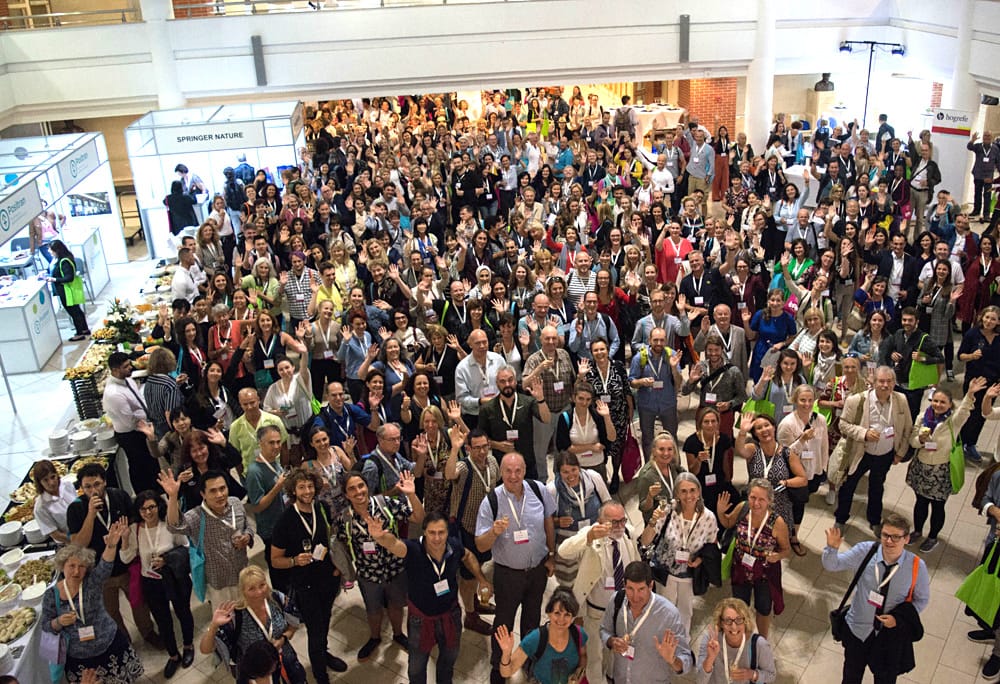Laboratory Staff at the 9th Conference on Positive Psychology in Budapest
At the end of June, the 9th Conference on Positive Psychology (ECPP) was held in Budapest, Hungary. The topic this year is “Positive Psychology for the Prosperity of Europe in Transition.” The conference was organized on the basis of the University of Budapest and brought together more than seven hundred participants from 66 countries.

The program covered three main aspects of positive psychology: theory and basic research, applied research and practice, including several subtopics: education, increasing life expectancy, biological aspects of well-being, health, coaching, and social policy. The participants had a unique opportunity to get acquainted with the position of leading scientists in this field: Mihai Chiksentmihaii, Itai Itzvan (UK), Ryan Niemiec (USA) and others.
Among the most significant was the presentation by Mihai Chiksentmihaii, who dwelt on the problem of the influence of the socio-cultural context on individual well-being. In the study he presented, it was found that the Gross Domestic Product is associated with indicators of human happiness experienced (positive) and income inequality in society (negative); the indicator of happiness experienced positively correlates with the indicator of social trust and negatively with income inequality.
Itai Itzvan presented the project of the “second wave” of positive psychology, which recognizes the great importance of the experience of suffering and difficulties in a person’s life for his personal growth, for the development of strong character traits and the experience of psychological well-being.
The Ryan Niemiec talk was about a program to develop the practice of mindfulness meditation and character strengths. This program involves practical exercises in topics such as the development of the psychological attitude “obstacles are opportunities”, meditation of awareness, recognition of the value of interpersonal relationships, training in finding the middle ground, development of authenticity and kindness, involvement in life. A study by Ryan Niemiec and colleagues found that practicing the Mindfulness & Character Strengths program was positively associated with psychological well-being, coping with stress, and job satisfaction.
Professor Tamás Freund, Director of the Institute of Experimental Medicine of the Hungarian Academy of Sciences (IEM HAS, Budapest Venria), made a keynote speaker with the report “Network Oscillations - Learning - Creativity: Influences of Our Inner World and the Information Flood”. The author devoted his speech to the important problem of the relationship between the human inner world and the information flow that we face daily. Professor Tamás Freund paid much attention to the influence of excessive enthusiasm on the use of social networks and the Internet for adolescents and children.
The conference was attended by employees of the Department of Psychology and the Graduate School of Psychology at the Higher School of Economics. The report of postgraduate student Sergey Ishanov and associate professor Evgeny Osin “Positive and Productive Solitude: Experience and Predictors” addressed the problem of positive and productive privacy, and presents the current results of the authors in this topic. A positive attitude to situations of solitude correlates with the level of development of the Ego (as it is understood in the concept of J. Levinger): people with a higher level of development of the Ego are characterized by experiencing more positive emotions in solitude and a greater variety of activities in solitude.
The report of Professor Dmitry Leontiev and graduate student Alesya Shilmanskaya, “The Three A’s of Personal Life Position: A New Inventory for the Assessment of Awareness, Agency, and Authenticity”, was devoted to the development of a method for diagnosing a personal life position in relation to one’s own life. Within the framework of the methodology, three dimensions are identified: awareness, subjectivity (agency), authenticity. Each dimension contains a cognitive, conative, and affective aspect.
The conference featured 175 poster presentations on topics related to psychological well-being. Polina Beloborodova and Dmitry Leontyev presented the poster “Russian Students’ Conceptualization of Life Calling: A Qualitative Analysis ”, dedicated to the study of life calling in a sample of students at the HSE University and NRNU MEPhI. Anna Fam and student Anna Menshchikova in the poster presentation "Choices of Different Subjective Quality: Inner Structure and Phenomenology" described the differences in the subjective experience of choice depending on its content. The poster of Religiosity and Well-being among Russian Buddhists and Muslims by Anastasia Klimochkina and Vladimir Shumsky was dedicated to the problem of the connection of religiosity and psychological well-being among Buddhists and Muslims living in Russia.
Separate sections were also devoted to flow experience, psychological well-being, meaning, human psychological resources, etc. From year to year, the conference on positive psychology provides researchers with a space through which information is exchanged between the scientific communities and international cooperation in this topic is strengthened.
